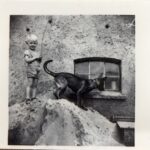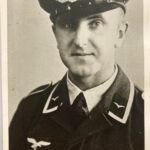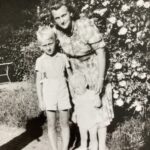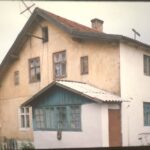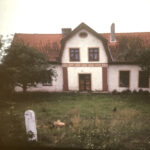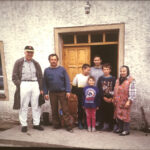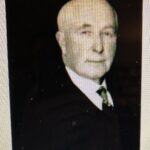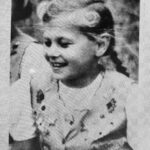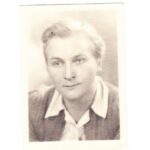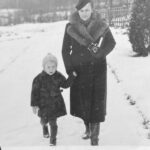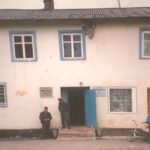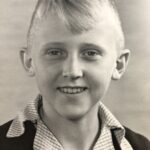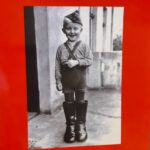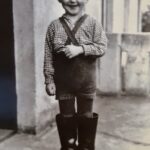Gunter Nitsch was born December 3, 1937 in Konigsberg, Germany. He was only two when the war began, so he has no memories of that, but he does remember many remarkable events during and especially after the war as Gunter grew up against the backdrop of Nazism and the war, and then Stalin and the Soviet occupation of eastern Germany. Gunter’s father was in the Luftwaffe, working in military hospitals in different locations, so Gunter really didn’t see him growing up. His mother left Konigsberg to go to a small village, to live with her parents; Gunter remembers well those times at the family farm, and especially his Opa. The war crashed into East Prussia in the summer of 1944 though, and Gunter’s family became refugees, walking to the west and trying to stay ahead of the Red Army. Gunter’s family was at their mercy, dealing with the degradations and assaults brought on at the end of a long war. The women – including Gunter’s mother – dealt with repeated sexual abuse and rape, and everyone dealt with the harsh living conditions and forced labour. Gunter’s Opa was forced to dig up the bodies of Shoah victims who had been murdered and buried at the Palmnicken beach. Gunter saw the misery that the older generations of his family experienced; he experienced them second hand, and all the while he received very little formal education. The family was eventually permitted to leave the kolkhoz (collective farm) where they had endured life for several years, and they made their way back to Germany, initially to East Berlin. At first they were in a refugee camp, and they had to acclimate themselves to a new Germany – and to a world that had changed immeasurably in a few short years. Things were difficult in the early going; they lived in poverty, and school was very difficult for Gunter. They did eventually make their way to West Germany, though a return to an earlier ideal of family life proved impossible: Gunter’s father had moved on and made a life without them, and did not offer much help. Gunter and his mother – and his younger brother – went through difficult times in the 1950s, and by 1961 Gunter made the decision to leave, heading to America to make a new life for himself. Mr. Masters’ History 12 class was able to interview Gunter Nitsch via zoom at his home in Chicago in April 2022.
Videos
Click next video below to keep watching
